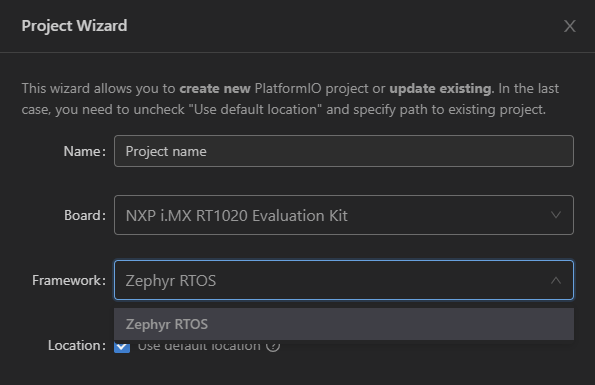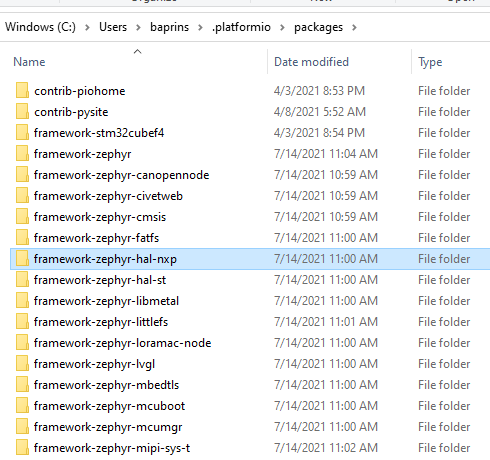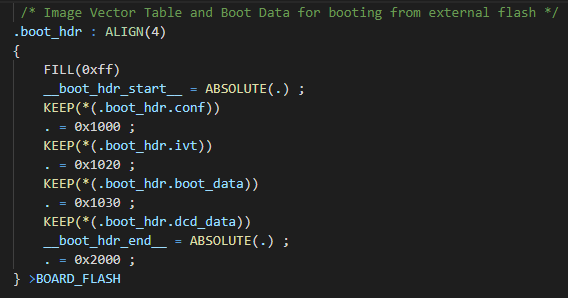I am working with an STM32 dev board which is running the following configuration:
- FreeRTOS
- Lwip (using ppp over serial, using an LTE modem)
We are investigating other chips now, and our focus moved to NXP (NXP i.MX RT1020). The idea was to port our firmware (not an insane amount of code yet) to the NXP chip.
In platform IO I see that I am only allowed to use zephyr as framework. I never heard of it, but googling seems that it an emerging alterative to FreeRTOS.

Now, because of the “specific” requirements we have with our modem (thus using PPP over serial), I am not sure if this is fully supported in sephyrs implementation.
So as a first step, I much rather prefer to use my current implementation (FreeRTOS + lwip) and thus only “port” the parts where I now use STMs HAL to NXPs HAL.
Is this possible in platformio? Or am I “forced” to work with zephyr when I use this chip in platformio?
Of course I could also try to use NXPs IDE, but if possible I rather stick with VScode too.
Many thanks for any help/pointers/suggestions!

